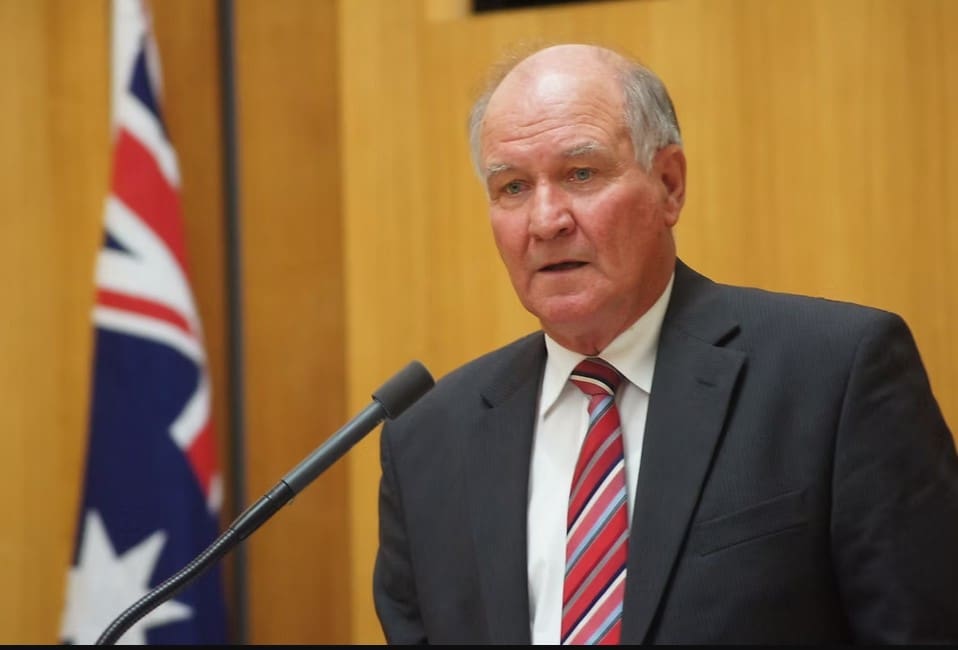
Tony Windsor discussed the issues of farm advocacy and independents during a recent Grain Producers Australia webinar. Photo: GPA
FORMER independent MP and New South Wales grain grower Tony Windsor has called on farm industry bodies to rethink their approach to lobbying, as the prospect of a hung parliament looms following this weekend’s federal election.
Mr Windsor spoke about the challenges and opportunities of a minority government, and the potential rise of more independents, during a Grain Producers Australia webinar last week in conversation with former federal press gallery journalist Tim Shaw.
He urged farm groups to work hard to build relationships with minority parties and independents and to help them better understand rural issues.
As the independent member for New England from 2001 to 2013, Mr Windsor was closely involved in the aftermath of the 2010 election, which resulted in Julia Gillard forming a minority government.
He is also a lifelong grain grower, farming in northern NSW.
Mr Windsor said farm advocacy bodies during the Gillard years and for the past several decades had become “captured by the political process”.
He said this impacted how the NFF had been viewed by all sides of politics.
“In the parliament…[the NFF] was actually taken for granted and often times laughed at by both sides of parliament,” Mr Windsor said.
“The Labor party didn’t pay much attention to them and the Liberal and National Parties didn’t either.
“They paid them lip service and that’s the worst type of representation.”
Mr Windsor said the NFF and others needed “to find out what it really needs in terms of oversight” and “develop arguments that are logical” to present to parliamentarians.
He praised the work of cotton representative bodies as examples of advocacy that examined the issues and found ways to solve them without political help.
“Historically what we’ve had…is that the beef and sheep producers, for instance, have always relied on getting a friendly politician along to stop something adverse happening to them.
“If you look at the cotton industry…they haven’t gone down that track at all.
“They sat down, and they worked out what the issues were, what [they’re] going to have to address.”
Mr Windsor said this has resulted in cotton being “in front of the game” in terms of key issues, such as, chemical and water use and the overall topic of sustainable farming.
Role of independents
Currently, the crossbench in the House of Representatives includes 13 independents, four Greens, one Centre Alliance and one Katter’s Australia Party.
The Senate features four independent members, one each from the Jacqui Lambie Network, Gerard Rennick People First, Australia’s Voice and United Australia Party, two from Pauline Hanson’s One Nation and eleven from the Greens.
The number of MPs and Senators sitting outside the major parties could rise after this weekend’s federal election.
Mr Windsor said farm groups should build relationships with these people to help them better understand the realities of rural life and the key issues facing the sector.
“Irrespective of whether it’s a hung parliament or not, a lot of them will be in the parliament and they won’t have a day to day living experience of agriculture.
“The farm sector needs to get to know who these people are.
“They shouldn’t just be walking through the door when there is a contentious issue.”
He urged farming groups to invite independent MPs and Senators onto farms to see operations firsthand and discuss issues directly, and “not with the NFF waving some sort of political flag”.
Rework climate change discussion
Mr Windsor said the discussion around climate change was one issue that would benefit from this style of grassroots talks between politicians and farming groups.
“We are the potential victims, first on the line, with the risks associated with dramatic weather events and for people to still be out there and doubting the science of this sort of stuff and to be captured by the politics…is a very sad thing.
“We need have got to recognise some of the scientific realities and actually try and address those.
“Agriculture should be a very important part, an important ingredient in the solutions.”
He said technology would play a crucial role in addressing climate change challenges in agriculture and could be central to discussions with political representatives.
“There is a lot of technology historically that we have at the forefront of and I think that’s one of the things we need to reposition ourselves as a global player again.”

HAVE YOUR SAY